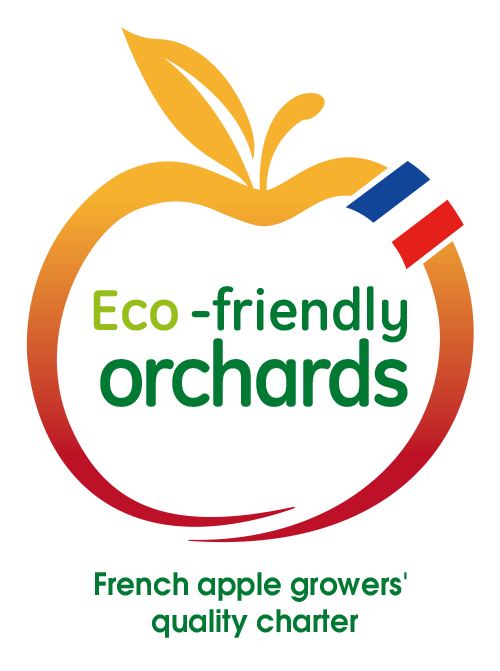
For more than 20 years, French arboriculturists have been committed to respecting an eco-responsible production process. Very early on, they were able to adapt their production methods to preserve the environment and respect the biodiversity of the orchard. They have been pioneers in all alternative techniques, particularly biocontrol, with the objective of producing healthy and tasty quality fruits.
Our commitments
100% FRENCH FRUITS HARVESTED AT OPTIMUM RIPENESS
The Eco-friendly Orchards label has been in use since 2010. Today, it applies to the French production of apples, pears, peaches, nectarines and apricots. During the harvest, each fruit is picked by hand. For the same variety, several passes of pickers may be necessary in order to pick the fruit at optimal maturity.
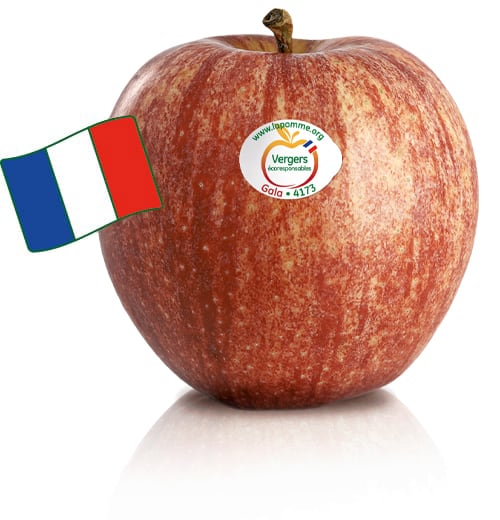
PRESERVATION OF BIODIVERSITY
Bees at the heart of pollination
The presence of foraging insects such as bees, butterflies or bumblebees in the orchard is essential for pollination and therefore for the development of fruit.
To favour pollination, arboriculturists have chosen to install beehives in the middle of their orchards. The Eco-friendly orchardists contract with beekeepers, which formalises a mutual commitment to preserve these essential insects.
Did you know that? Orchardists are sometimes beekeepers themselves.
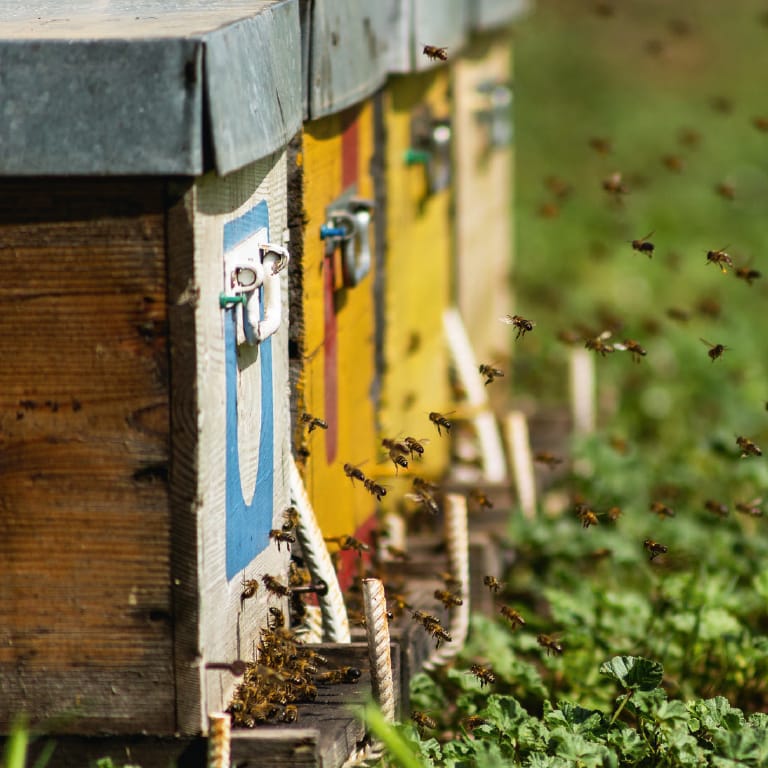
7,388 fixed beehives have been placed in the orchards
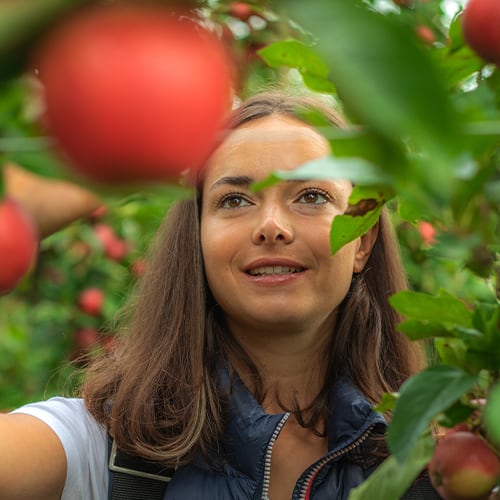
"Preserving biodiversity in my orchards is very important to me. Bees are essential for pollination, and many insects and birds are also very useful for pest control. I make sure they live well in my orchards."
Victoria, Apple grower in Charente.
Orchard organisation
To favour the presence of foraging insects, the arboriculturists rearrange their orchards thanks to grass strips between the rows and by planting many hedgerows and flower strips.
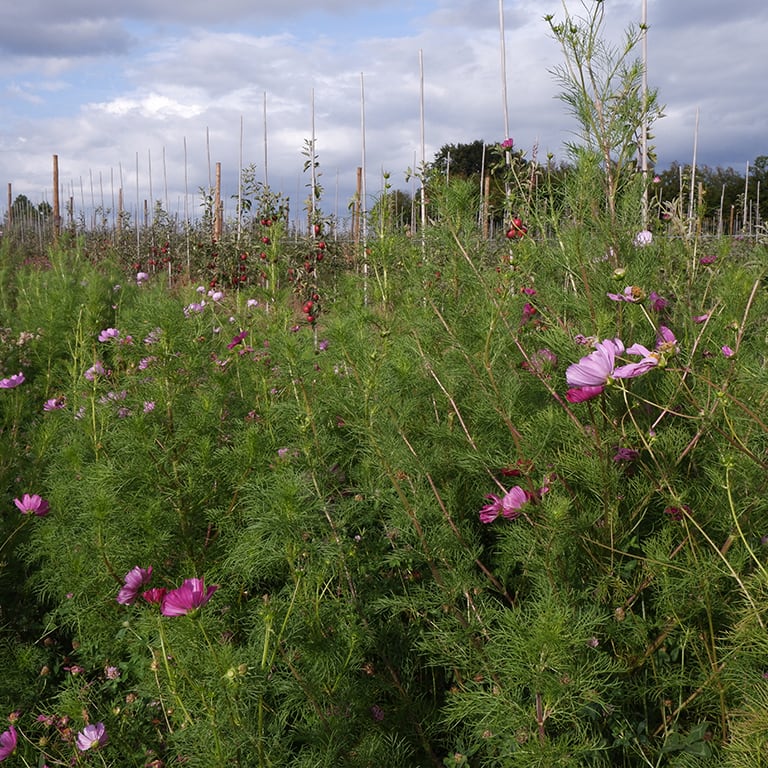
256 ha
of flower strips
256 ha
of flower strips
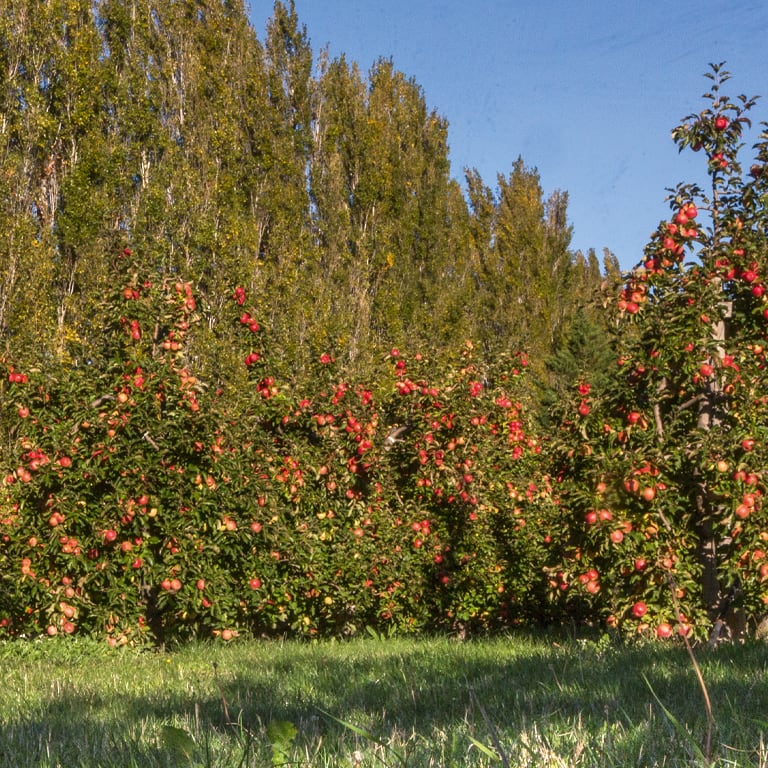
1,780 km
of hedgerows
1,780 km of hedgerows
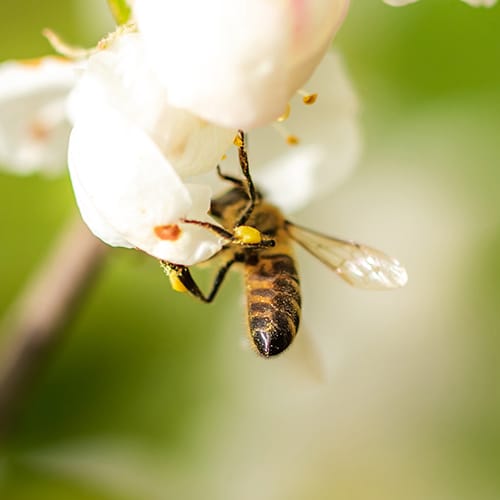

FAVOURING BIOLOGICAL CONTROL METHODS
Crop protection: a necessity, but with moderation
Throughout their production cycle, orchards are subject to many attacks by diseases and pests, which can jeopardize the harvest or make the fruit unfit for consumption. It is therefore essential for arboriculturists to protect the trees in order to produce quality fruits.
However, the arborist must proceed with moderation. Many insects, birds and other raptors, present in the orchard, are extremely useful throughout the development, from flower to fruit:
- Pollinating insects: such as bees and bumblebees, which are essential for pollination and fruit production.
- Auxiliaries or useful insects: they allow natural control of pests in orchards. Example: in apple orchards, ladybirds and earwigs contribute to aphid control.
- Birds: such as great tits or birds of prey that rid orchards of many pests.
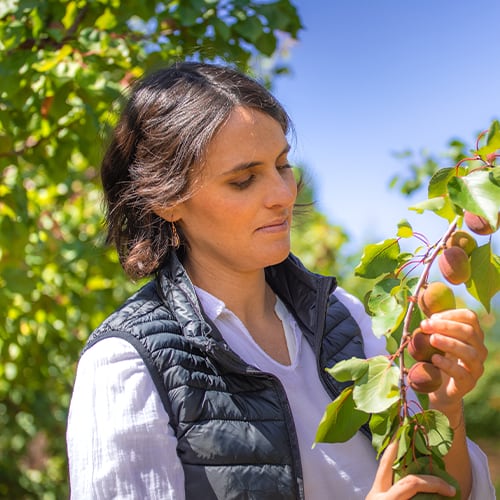
"I chose the Eco-friendly Orchards charter because it guarantees the production of quality peaches and apricots while limiting the impact on the environment and promoting biodiversity. This approach also helps us to implement agro-ecological infrastructures such as flowering fallows or the installation of bird nesting boxes.”
Sarah, Orchardist in Provence.
Biocontrol
Various prevention tools are implemented in the Eco-friendly Orchards to limit the use of phytosanitary products. These techniques are known as biocontrol or biological control, for which arboriculture has been at the forefront for many years.
→ Biological control makes it possible to do away with vermin and crop pests, by fostering the presence of their predators in the orchard.
An example of biological control in apple orchards consists in resorting to mating disruption to control the apple worm. The apple worm is the larva of a moth called the codling moth. The female lays her larvae on the leaves or fruit in which they dig galleries down to the seeds, causing considerable damage. To limit their presence, pheromone diffusers are hung in the trees and spread the smell of the female in the orchard. Disoriented, the male moths are unable to find the females. No mating means no larvae, and hence no worms in the apples! 100% of the eco-friendly orchards use either mating disruption or physical barriers (insect-proof nets) to combat codling moths.
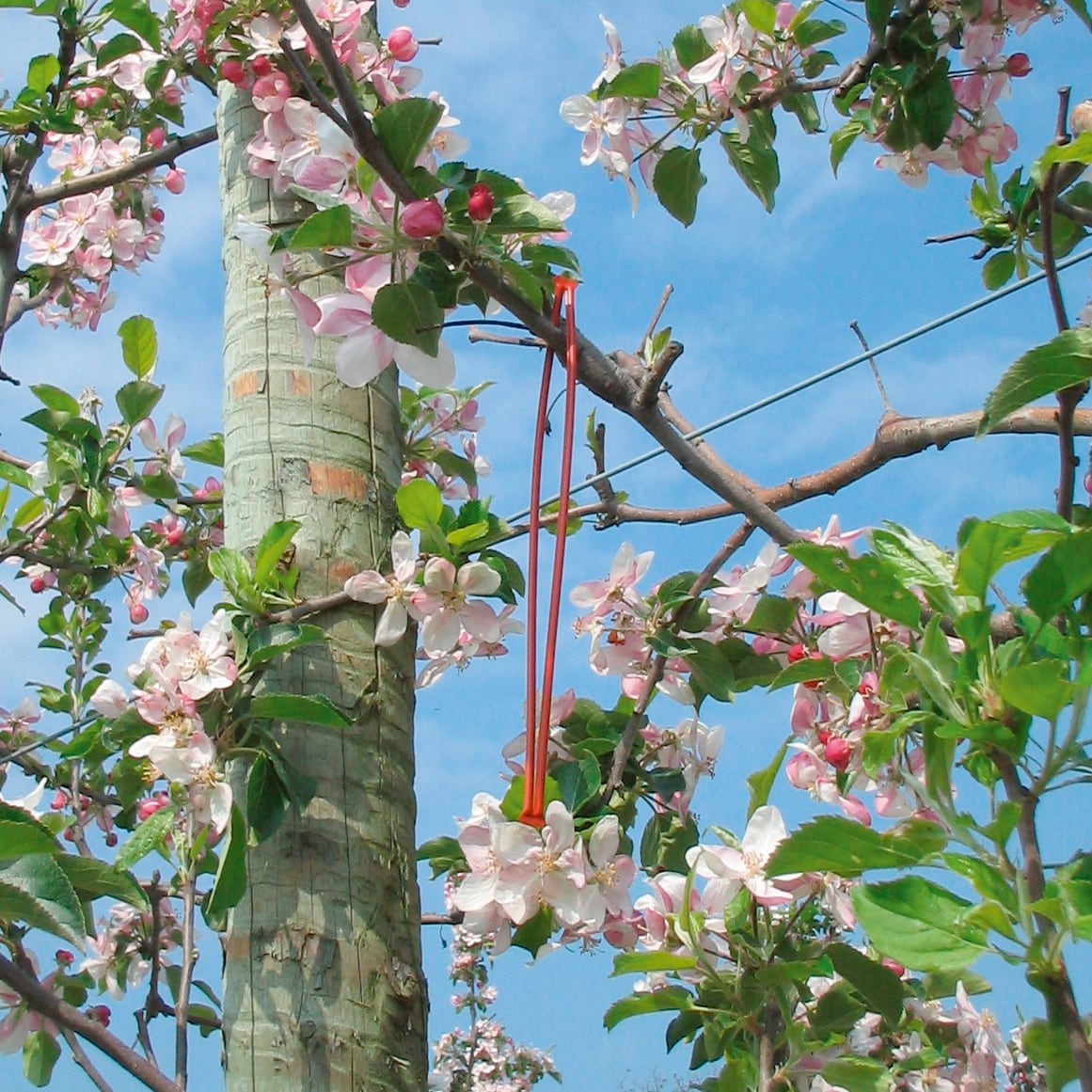
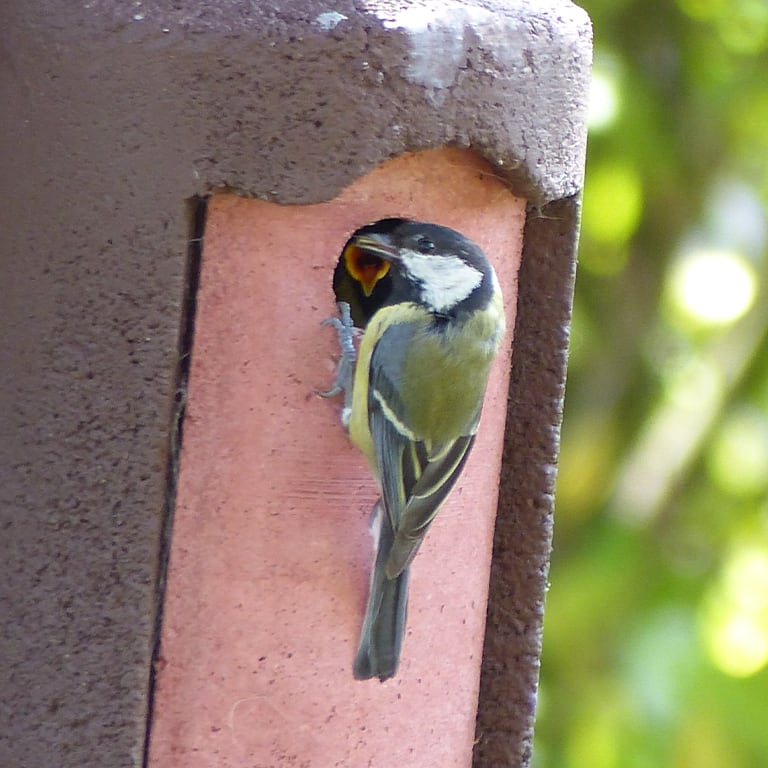
23,687
great tit
nest boxes
23,687 great tit nest boxes
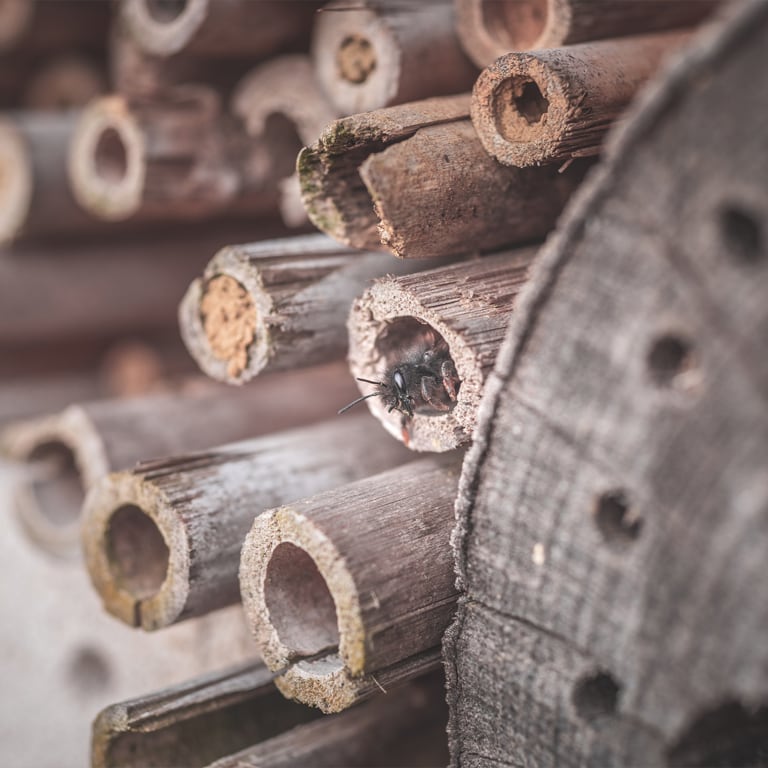
2,512
insect
hotels
2,512 insect hotels
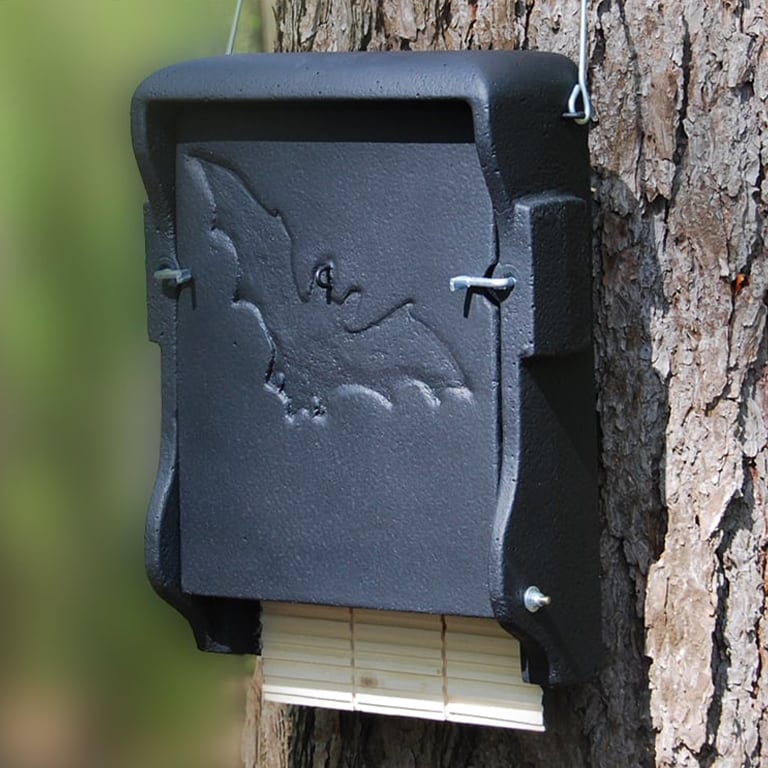
916
bat
houses
916 bat houses
THRIFTY WATER MANAGEMENT
Water is essential for growing and developing fruits. Thanks to the weather stations installed in the orchards, arboriculturists can analyse the data collected by probes placed in the soil to measure the moisture content.
Thus, they can limit the supply of water to the bare minimum, through drip irrigation or micro-sprinkling.
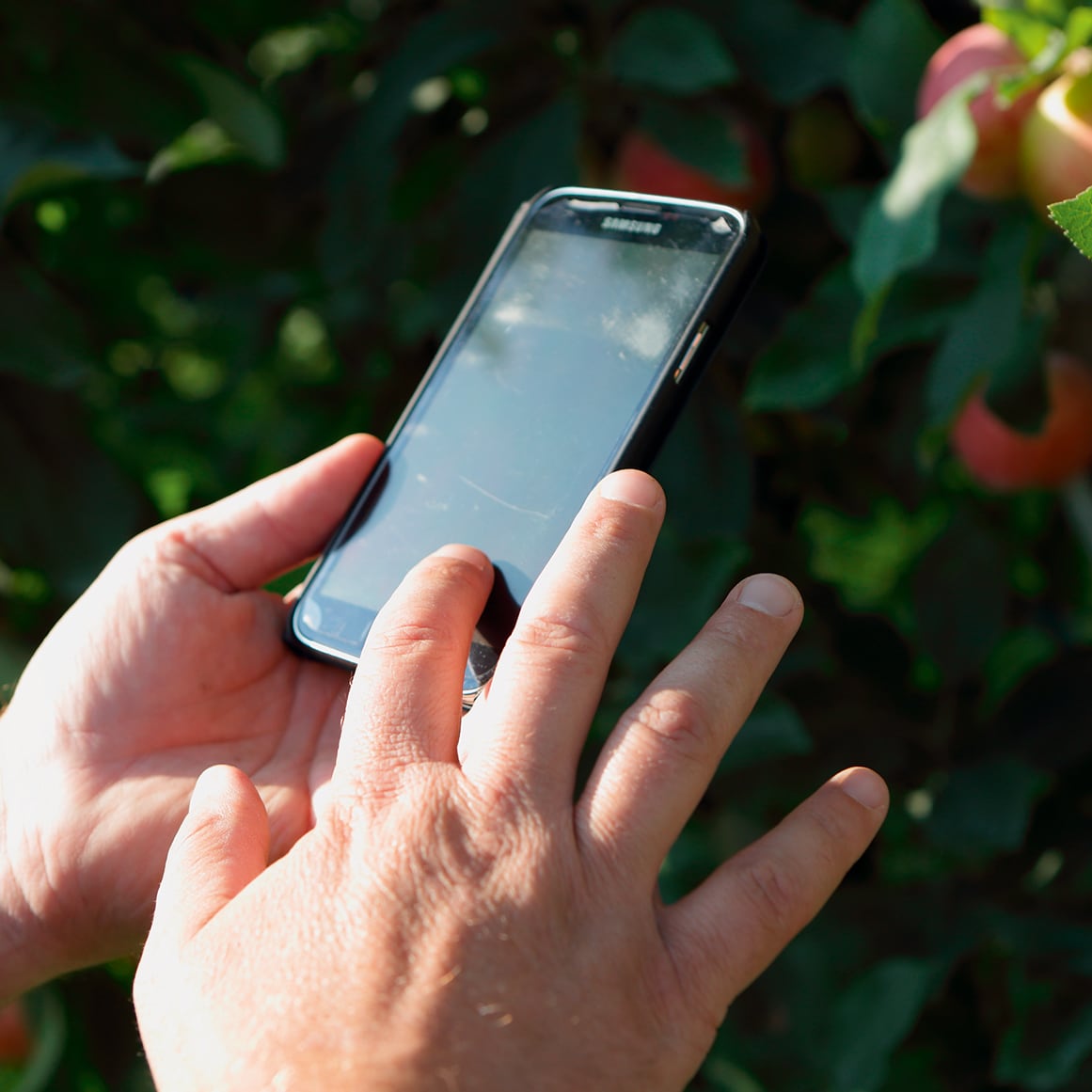
94 % of irrigated surfaces are controlled using decision making tools in order to limit water consumption.
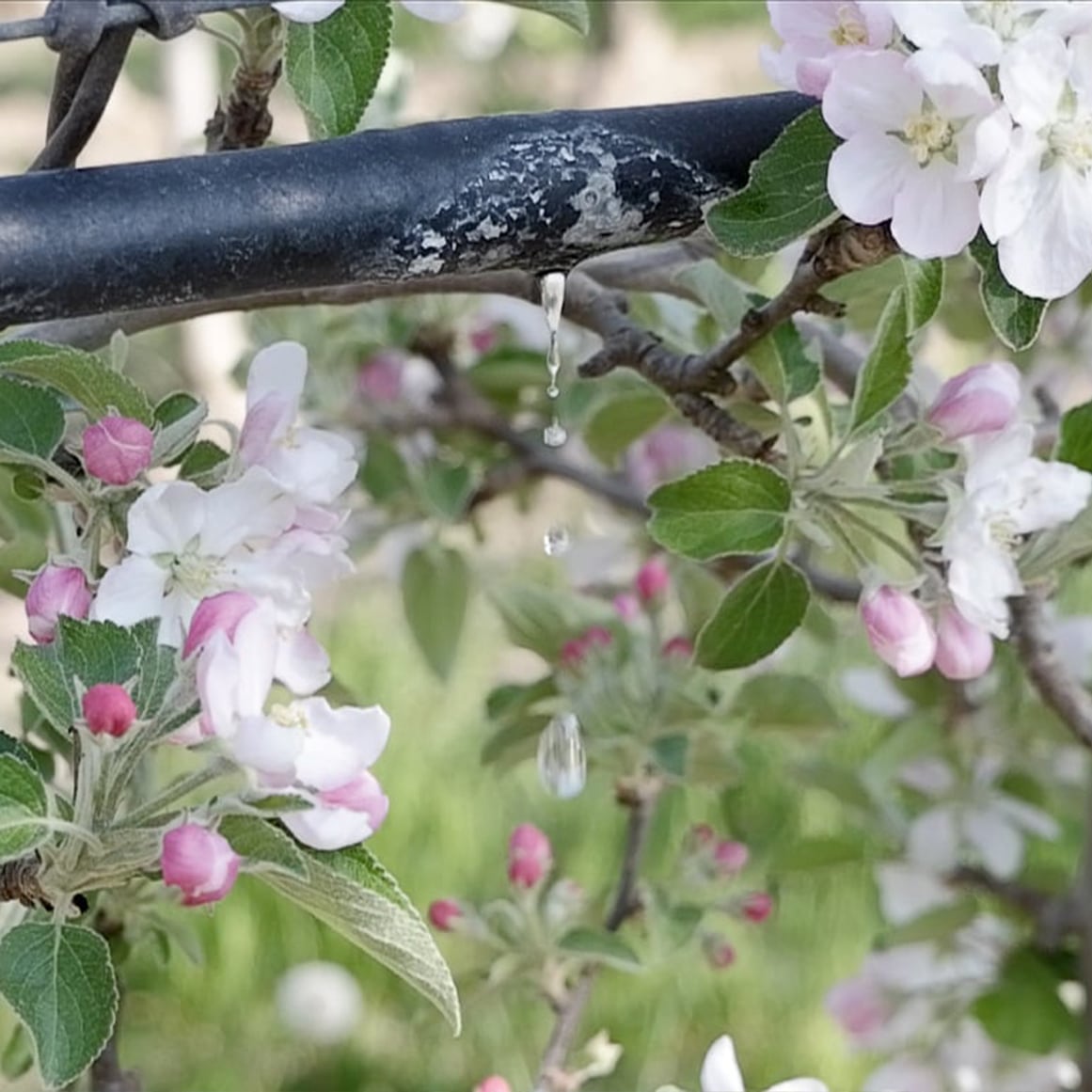
WASTE RECYCLING
„Vergers écoresponsables”-certified arboriculturists assume responsibility for the elimination of their waste and commit themselves to participating in recycling channels such as Adivalor.
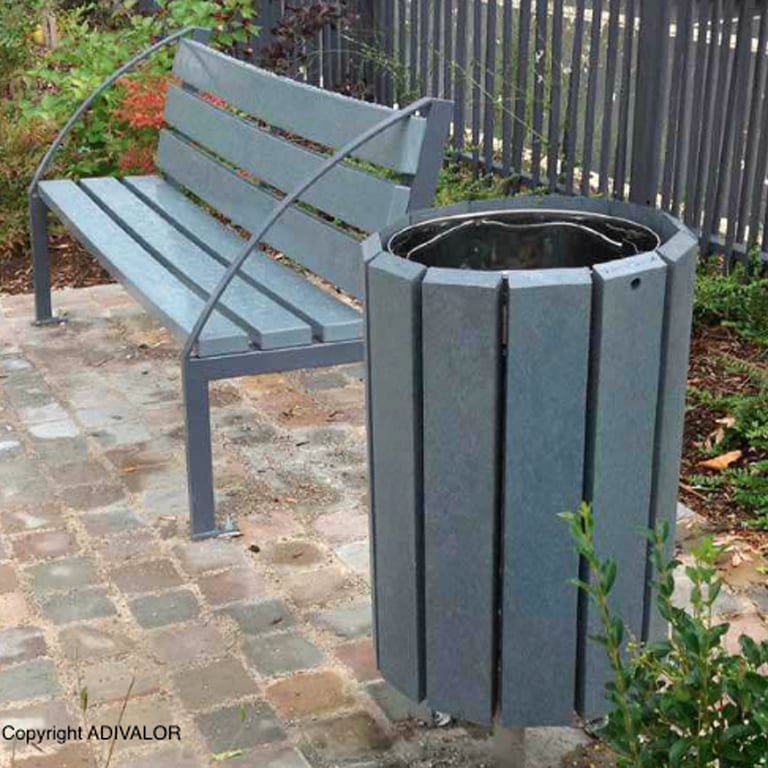
In 2020, recycling anti-hail nets contributed to the production of 50,000 public benches
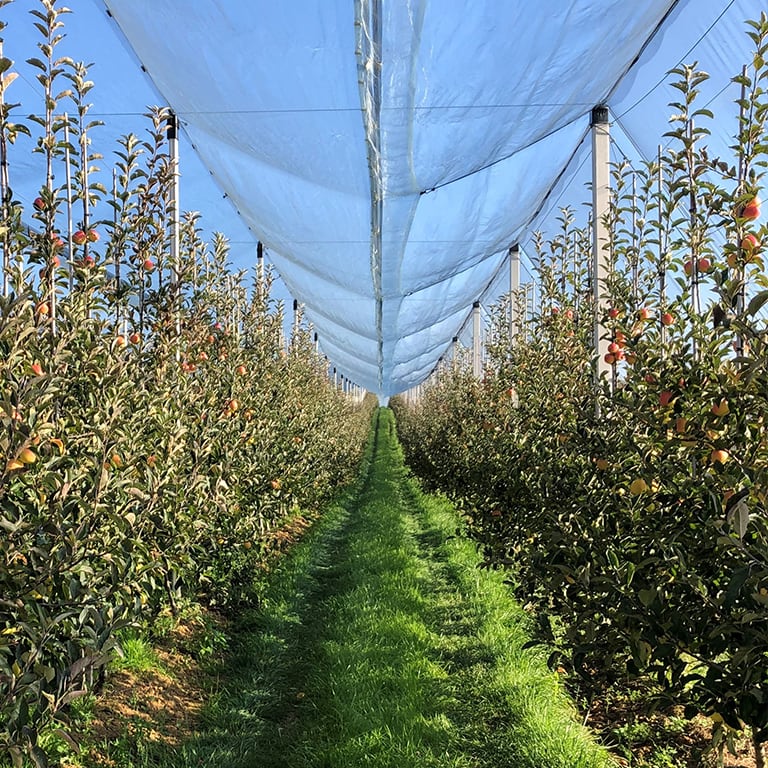
AN APPROACH CONTROLLED BY AN EXTERNAL BODY
Ensuring traceability and transparency of orchard practices
“Vergers écoresponsables”-certified arboriculturists must keep a culture book in which all interventions are recorded. This book accounts for traceability and transparency of practices. Systematic interventions are prohibited and each one must be technically justified
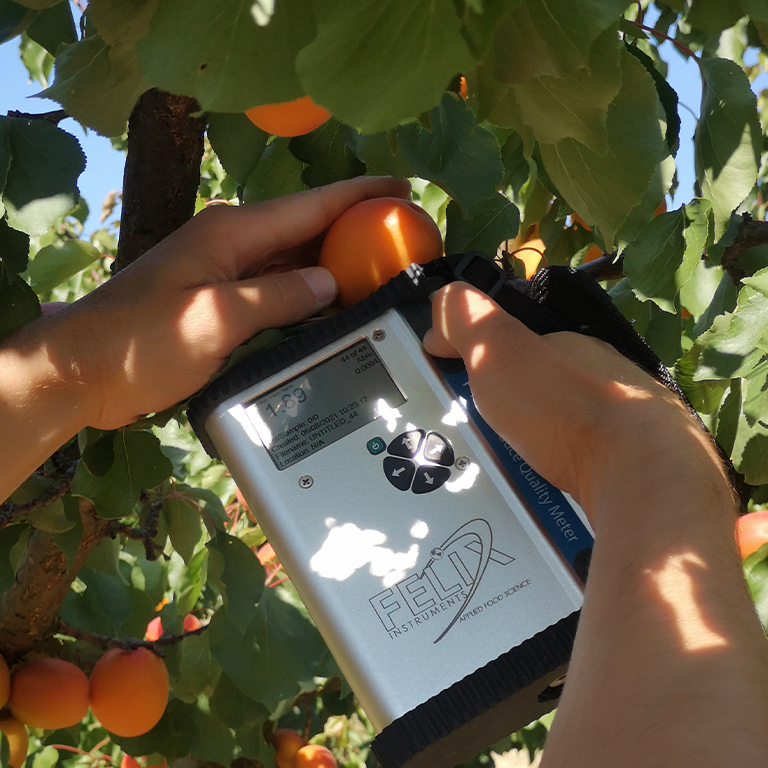
Technical support
In order to make the best decisions, the arboriculturist is accompanied by a technical advisor who is independent of the suppliers of phytosanitary products. Technical advisors help orchardists to update their knowledge to enable them to enhance their practices, while taking into account the latest technical breakthroughs.
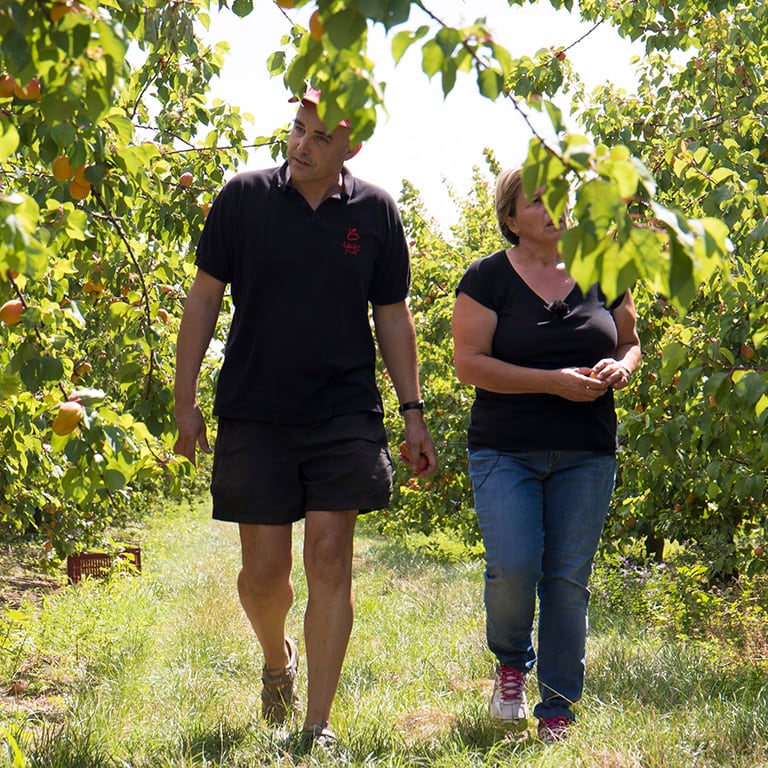
An approach controlled by an external and independent body
100% of fruit farms are controlled every year by an independent control body.
A mandatory programme of analyses
In order to ensure healthy fruit for consumers, an annual health monitoring programme is carried out by Cofrac accredited laboratories. These laboratories carry out multi-residue analyses per range of 1,000 tons of fruit per producer or producer organisation.
It is forbidden to sell the lots that do not comply with the regulations in force.
These programmes ensure that the fruits comply with the health regulations in force.
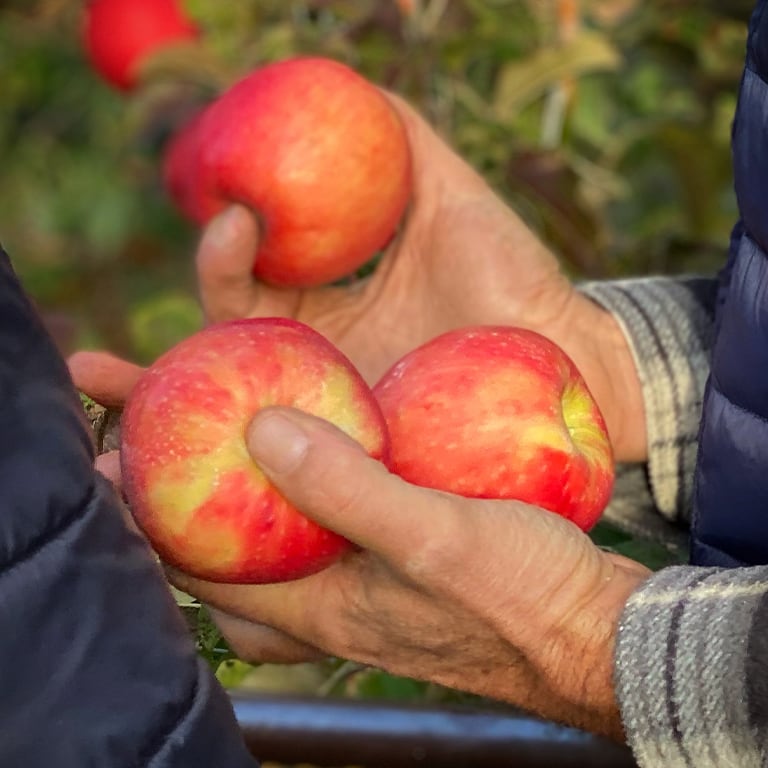

THE VERGERS ÉCORESPONSABLES MILESTONES
The apple sector is a pioneer in arboriculture with the Charte de Production Fruitière Intégrée (Integrated Fruit Production Charter)
The apple sector is a pioneer in arboriculture with the Charte de Production Fruitière Intégrée (Integrated Fruit Production Charter)
Creation of the label Vergers écoresponsables covering French apples and pears
Creation of the label Vergers écoresponsables covering French apples and pears
Extension of the label to French peaches, nectarines and apricots
Extension of the label to French peaches, nectarines and apricots
Partnership with Florette and McDonald’s for chewable small fruit pouches
Partnership with Florette and McDonald’s for chewable small fruit pouches
Partnership with Materne and Pom’Potes for the procurement of Vergers écoresponsables-certified apples
Partnership with Materne and Pom’Potes for the procurement of Vergers écoresponsables-certified apples
Partnership with Charles & Alice for juice and compote product ranges
(commitment regarding apples)
Partnership with Charles & Alice for juice and compote product ranges
(commitment regarding apples)
Partnership with Adamance regarding a 100% procurement of fruits from Eco-friendly Orchards producers for its product range of juices and nectars.
Partnership with Adamance regarding a 100% procurement of fruits from Eco-friendly Orchards producers for its product range of juices and nectars.
What about tomorrow?
A profession committed to the prevention of global warming
(carbon neutrality, limited CO2 emissions - commitment regarding apples)
What about tomorrow?
A profession committed to the prevention of global warming
(carbon neutrality, limited CO2 emissions - commitment regarding apples)
